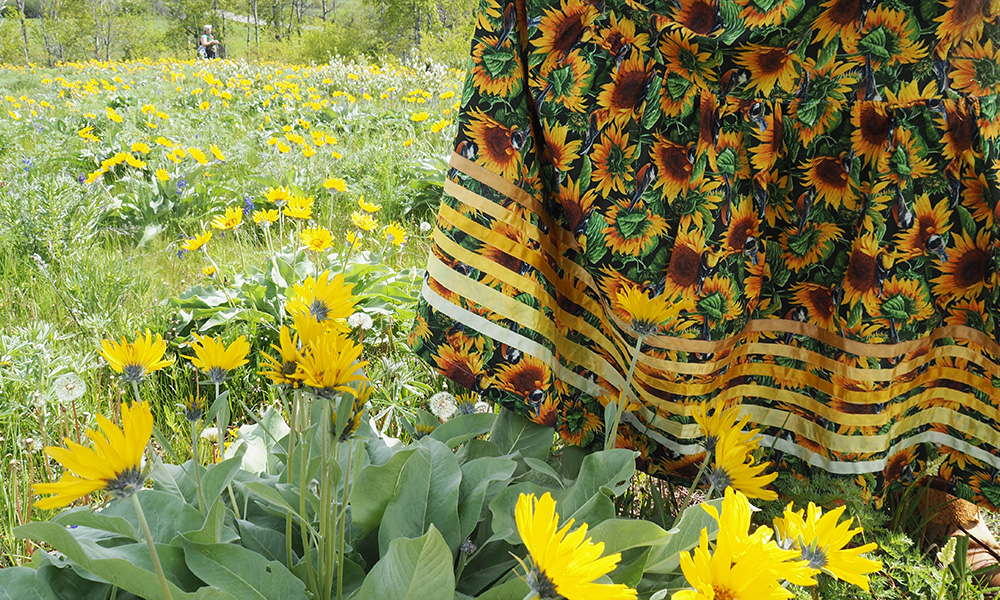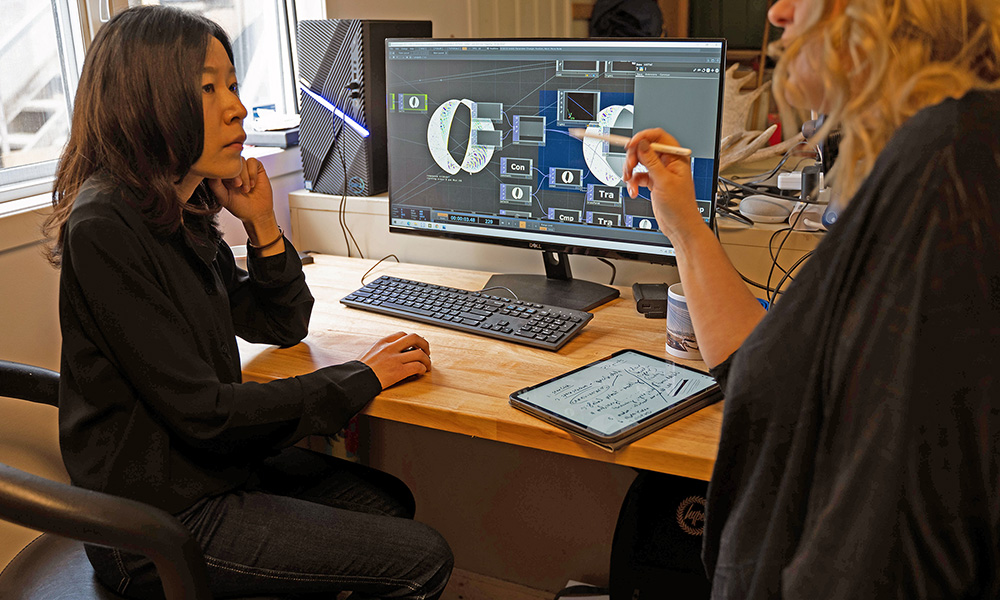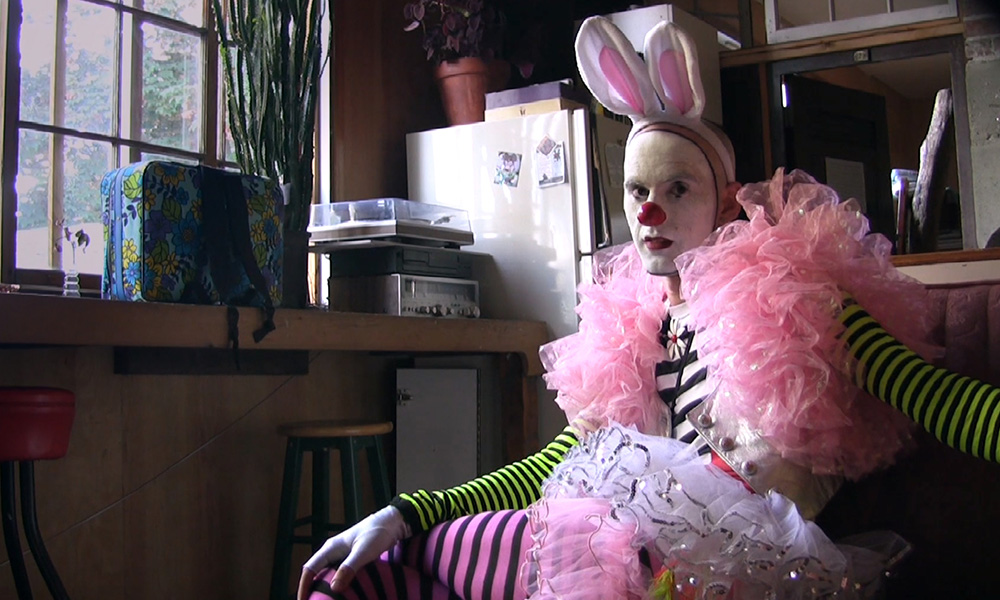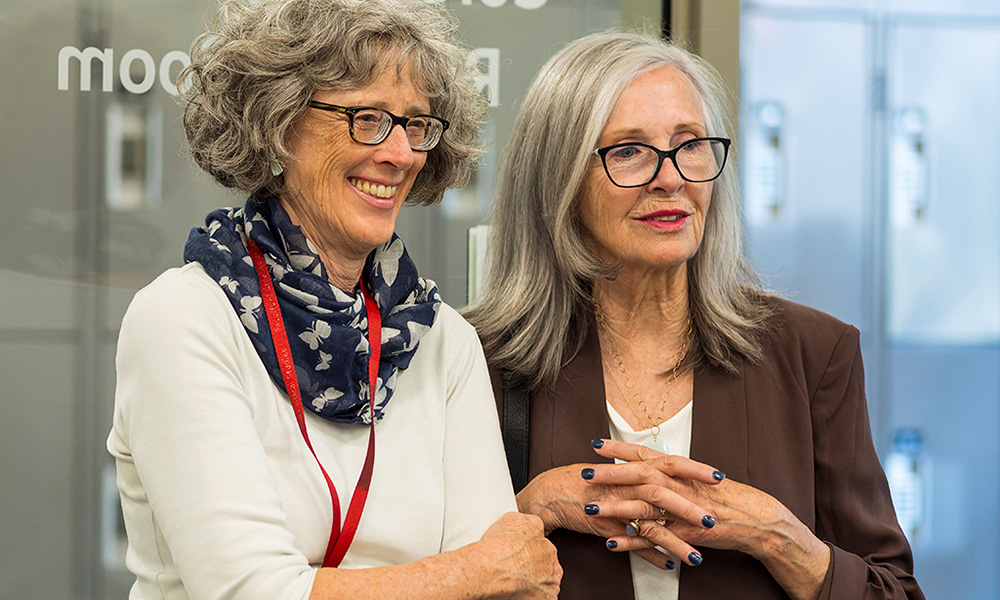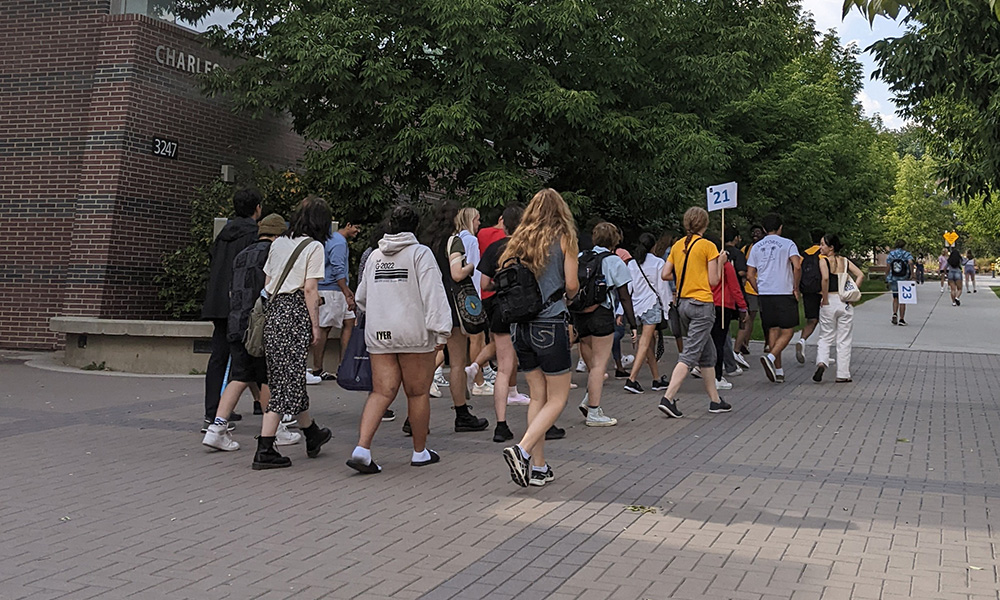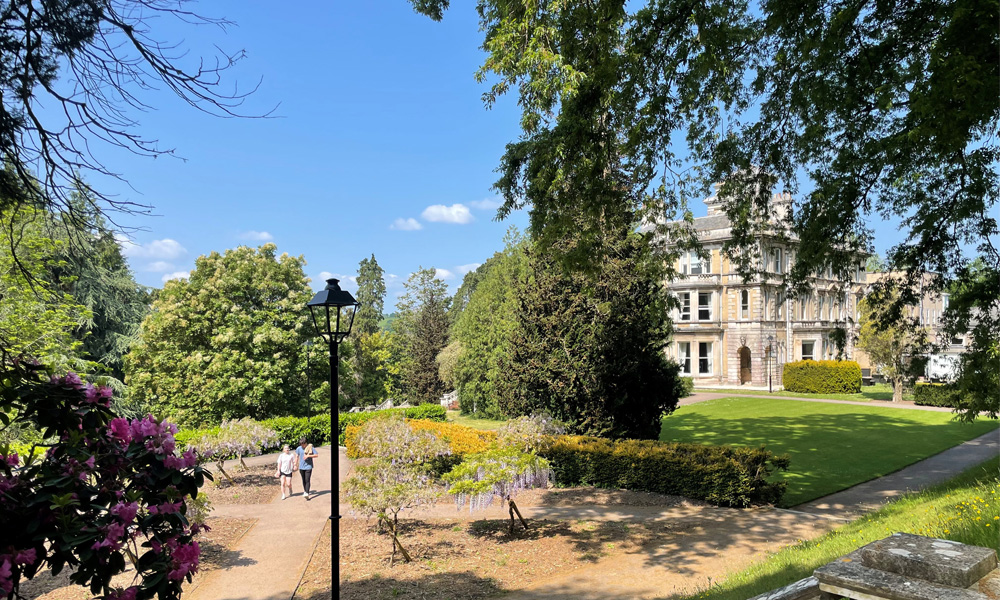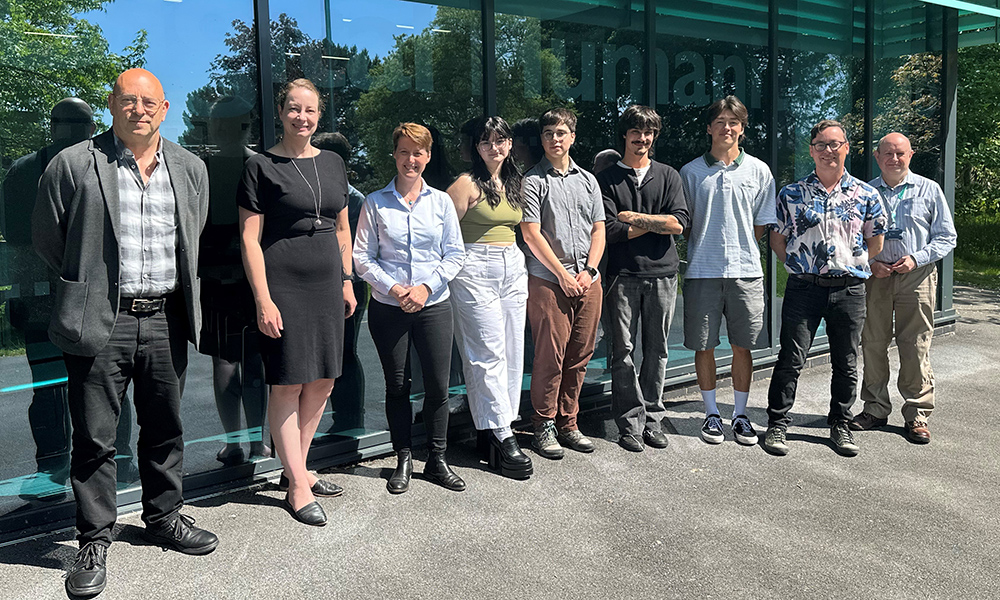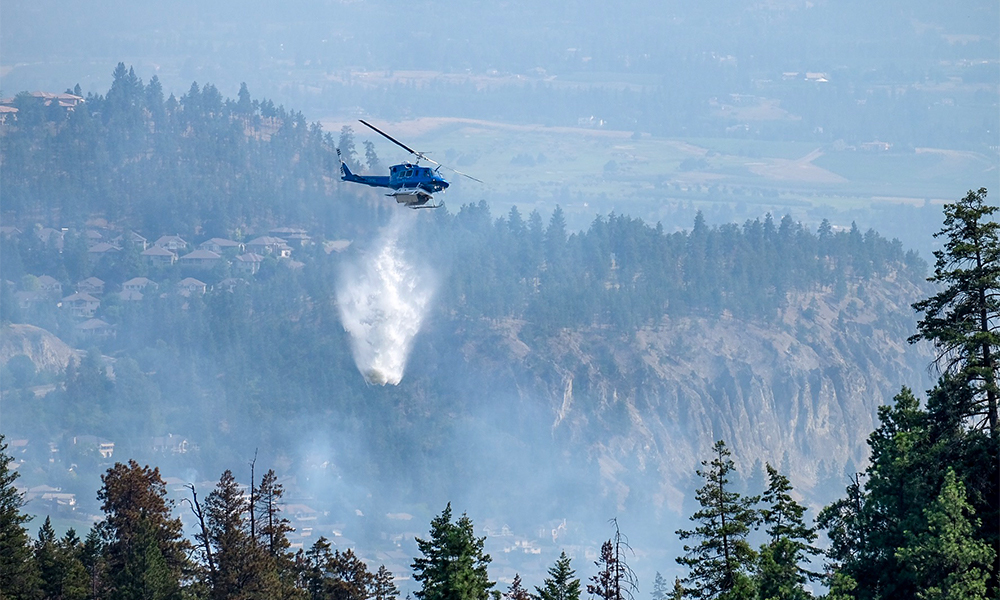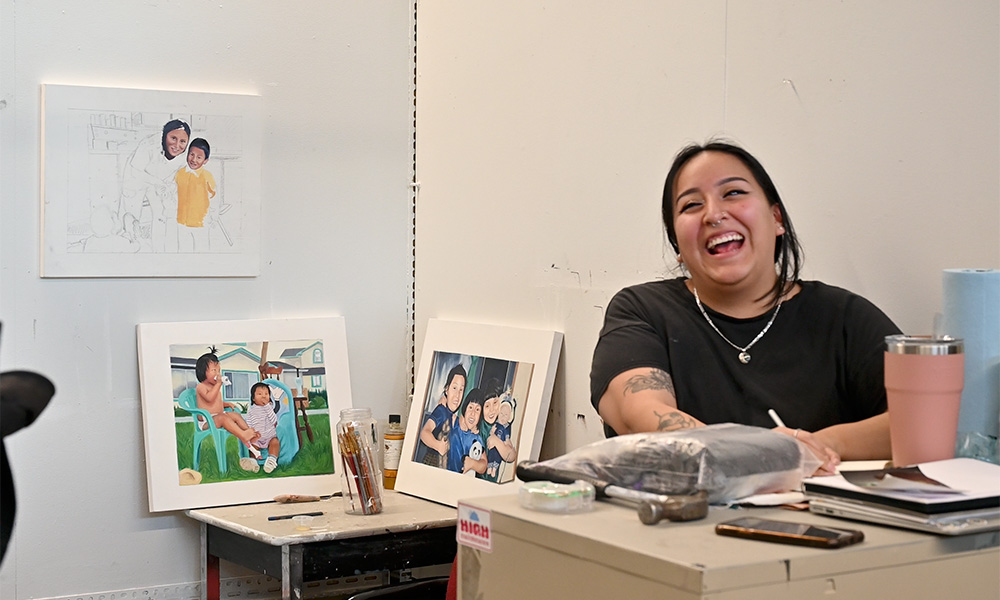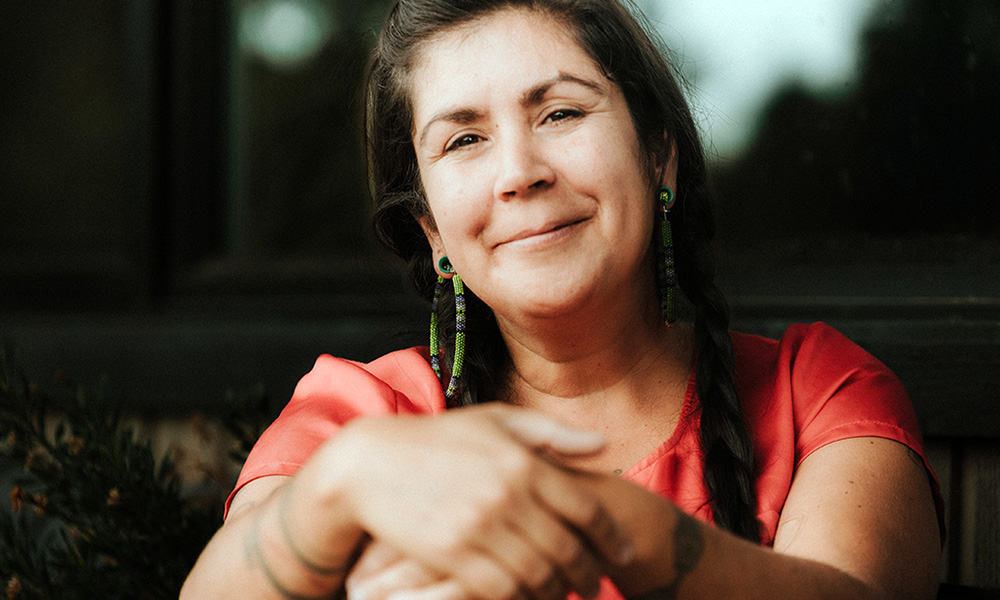
Assistant Professor Tania Willard is the inaugural Director of the UBC Okanagan art gallery. Photo credit: Billie Jean Gabriel.
UBC has appointed accomplished artist and curator Tania Willard as the first-ever Director of the UBC Okanagan Gallery.
The gallery was formed as an umbrella institution to manage the FINA Gallery, UBCO’s Public Art Collection and the planned downtown gallery space.
Under Willard’s direction, the UBCO art gallery will become the region’s first university gallery with a specific focus on decolonial and inclusive practices, says Dr. Bryce Traister, Dean of the Faculty of Creative and Critical Studies, following the existing mandate to support new acquisitions and commissions of Indigenous art.
“With our commitment to engaging with and being a leader for our local arts community, we are excited about the addition of this position to the gallery,” Dr. Traister says. “With Tania’s background as an artist and curator, we are confident she will move the gallery forward positively.”
Willard is an Assistant Professor and Director of UBCO’s Indigenous Art Intensive. The intensive is an annual program that gathers students, artists, curators, writers and scholars to discuss contemporary ideas and discourse rooted in Indigenous art-making.
Part of her work at the gallery will include growing financial support and programming for the gallery while maintaining the vision of an experimental space that embraces decolonial and inclusive practices for diverse publics.
Dr. Traister adds that Willard brings her specific practice in Indigenous contemporary art as well as a broad scope of practice and networks to the position.
Reflected in the gallery mandate is a commitment to increase the representation of Syilx artists in the permanent collection, and following UBC Okanagan Gallery curator Dr. Stacey Koosel’s curatorial leadership, Willard will contribute to that vision and help shepherd the gallery into the future, including the development of the new gallery in the UBCO building in downtown Kelowna.
Willard, who has worked with every scale of an art institution across the country and internationally, says she looks forward to joining the gallery team. Together, they envision inclusive approaches grounded in Syilx territories that can encompass a broad area of interest, both in the local communities and online and digitally.
She notes she is firmly committed to increasing the representation of Black, Indigenous and People of Colour artists in UBCO’s permanent art collection as reflected in the gallery mandate.
“My goal is to manage the collection across campus and outdoors and also provide fresh programming and unique opportunities for UBC Okanagan students and regional communities to learn directly from the gallery, its exhibitions and programming,” says Willard.
“I see a growing future for the influence of a new university gallery as part of the region’s exciting network for arts and culture in the city.”
The post UBC Okanagan appoints Willard inaugural gallery director appeared first on UBC Okanagan News.

